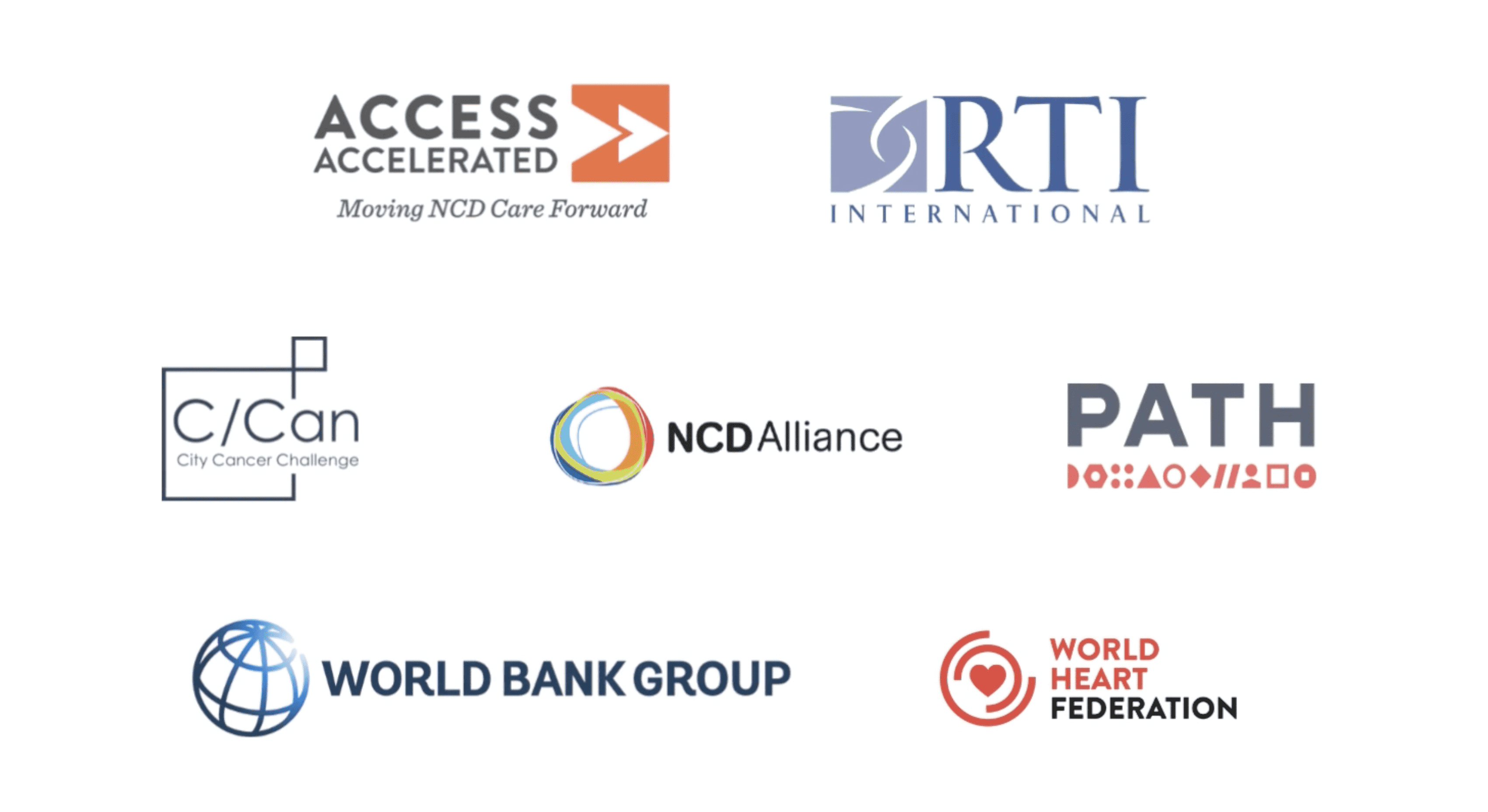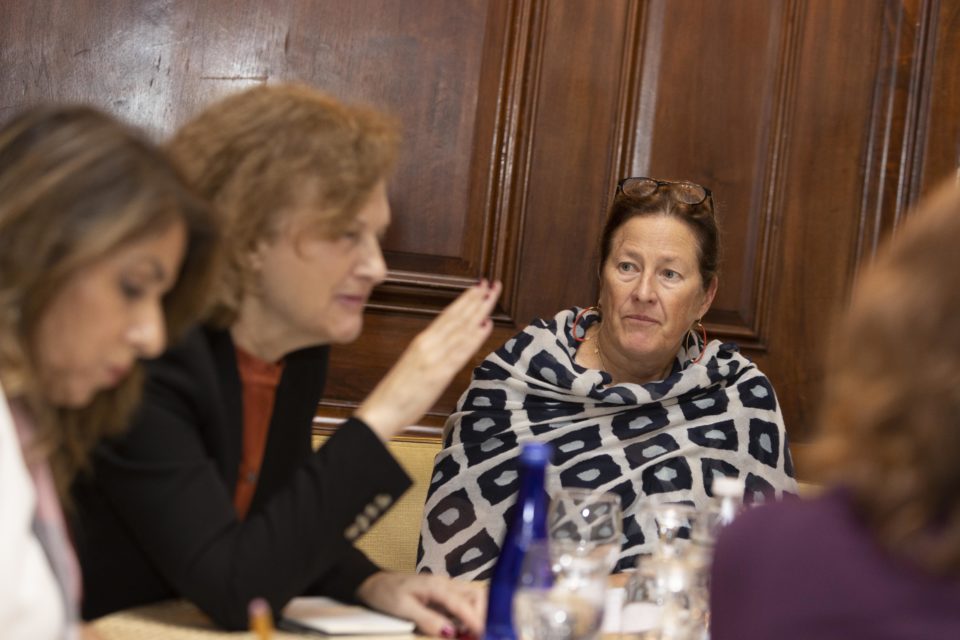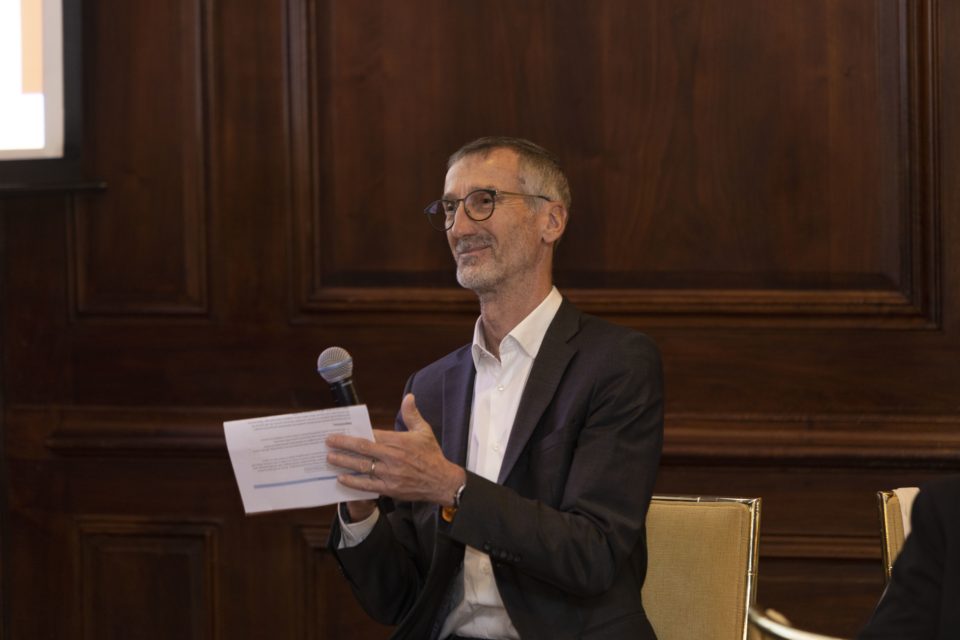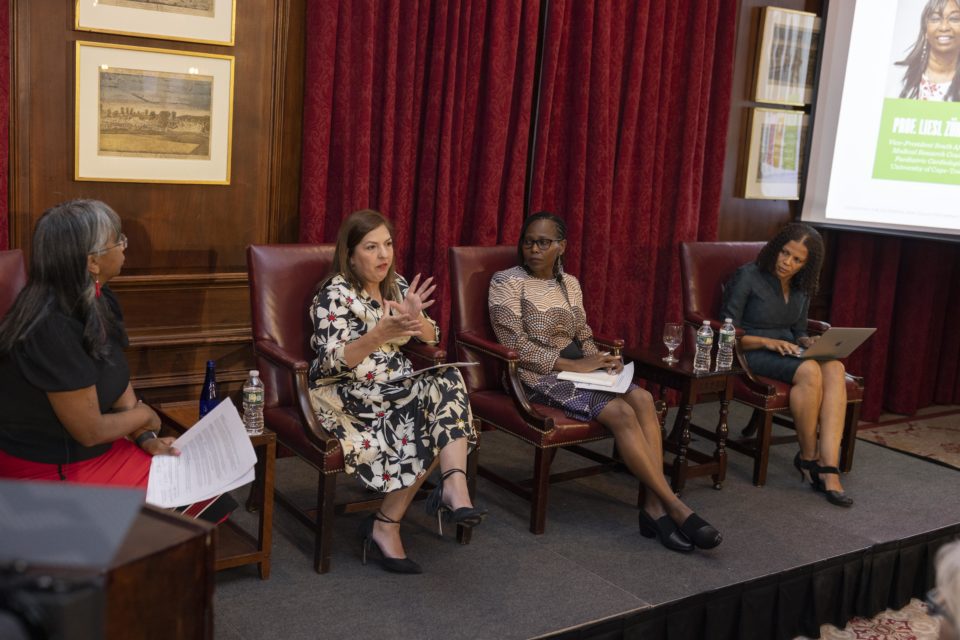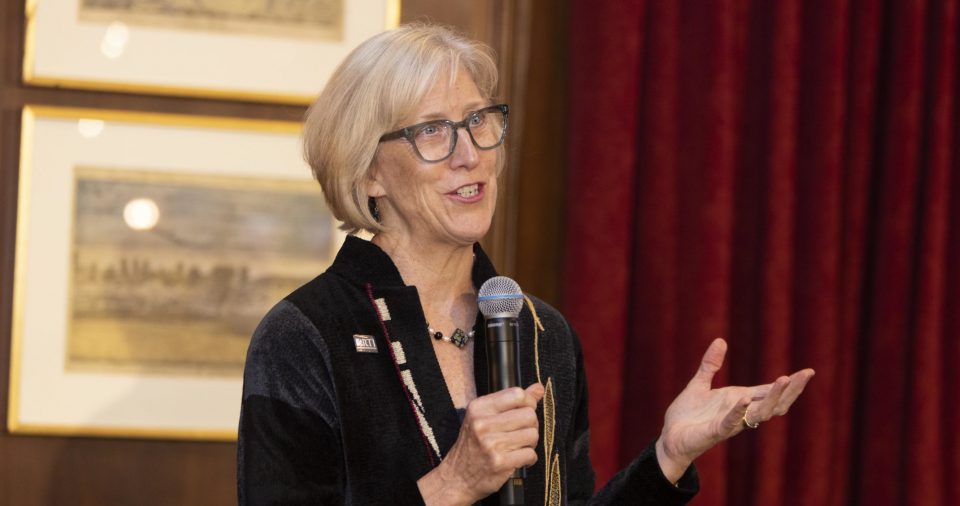Unlocking the potential for collective impact
On September 22, 2022, individuals from academia, government, nonprofit organizations, multilateral institutions and the private sector gathered in New York City on the margins of the UN General Assembly annual meeting for discourse on collective action in the field of noncommunicable diseases.
Download Event Report
The global health community is poised to make immense progress against noncommunicable diseases over the coming years, and we hope that key lessons from the Access Accelerated initiative can shine a light on successful models of collaborative partnership. Together we will continue to build partnerships, empower those living with NCDs, and foster shared ownership of NCD solutions.
Many thanks to the member companies for their contributions to Access Accelerated, and to our partner organizations for their tireless work on NCDs. We hope these conversations helped unpack how and why measurement can inform partnership and drive collective action.

"You can have the best technical data indicators and frameworks, but if you don’t have trust, if you don’t have a shared purpose, you’re not generous and humble, you will not have a successful collaboration.”
Key takeaways
-
Opening Remarks: Defining Connective Tissue
A range of benefits emerge when multiple actors pull in the same direction, including some less tangible benefits which resist measurement but matter a great deal to the success of the initiative.
-
Keynote: Addressing a complex problem
To achieve collective impact, it requires long timelines and rigorous approaches. At the same time, collective action is the only pathway to achieve system-level change on complex problems like NCDs.
-
Panel discussion: Grounded perspectives
Collaboration is helping to unlock sustainable scaling for NCD programs, is serving as a glue between fragmented health stakeholders and has the potential to save money and improve inefficiencies.
-
Closing remarks: Action to improve lives
The high number of global health initiatives shows great interest for proactive problem solving, reflects the diversity of priorities, but might also be a sign of competition overcoming collaboration.
Access Accelerated is paving the way for collective action on NCDs, and is committed to measurement and evaluation for the benefit of future global health initiatives. Measurement is critical to extracting knowledge from such pursuits and driving system-level change that will improve the NCD landscape. We are witnessing exciting developments in the measurement of collective action, with an emerging understanding of connective tissue and how we can measure intangible benefits such as trust, communication, and shared purpose. Achieving collective impact takes time and dedication, as does the process of measurement, evaluation, and learning.

"For a challenge like NCDs and lower- middle-income countries, there’s frankly no other way. I don’t know of any other silver bullet. It’s the only way is to activate the system and make change through many players around the table."
Speakers
Martin Bernhardt

Rachel Nugent

Kyle Peterson

Professor Liesl Zühlke

Dr. Jemima Kamano

Dr. Emilia de Castro Monteiro

Dr. Alicia Pomata

Dr. Juan Pablo Uribe, MD

Event Moderator
Director, Access Accelerated
Event Moderator Martin Bernhardt is the Director of Access Accelerated, leading overall strategy and implementation for this multi-year initiative. A social and economic scientist with over 20 years of experience in pharmaceuticals, Martin is a lecturer of Health Economics and Politics at Geneva University’s School of Pharmaceutical Sciences.
Event Moderator
Vice President for Global Noncommunicable Disease, RTI International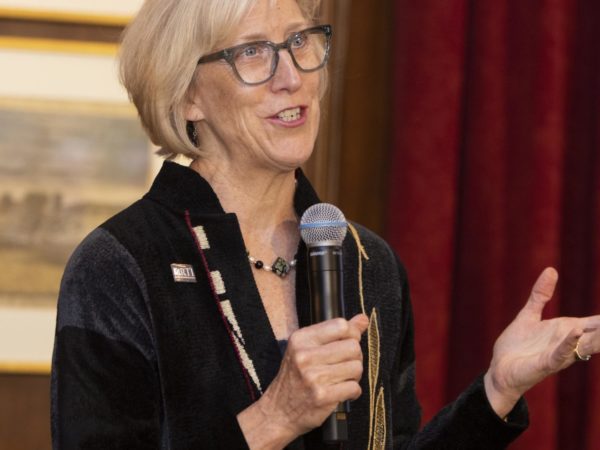
Event Moderator Rachel Nugent is Vice President for Global Noncommunicable Diseases at RTI International. She has more than 30 years of experience in global development as a researcher, practitioner, and policy advisor to governments, and leads RTI in policy analysis, implementation, and evaluation of strategies to prevent and control NCDs.
Keynote speaker
Co-Founder and Managing Partner, Boldly Go Philanthropy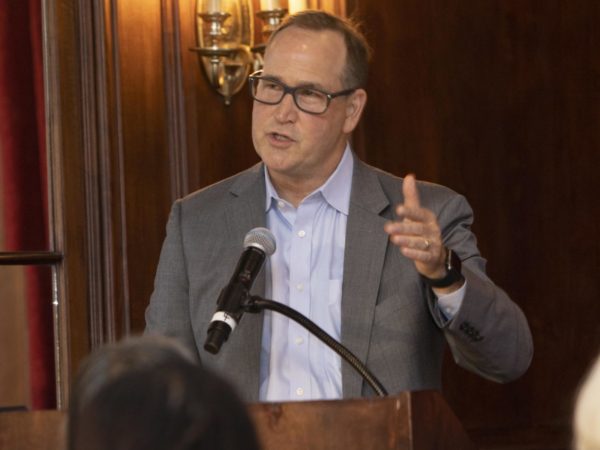
Keynote Speaker Kyle Peterson is the Co-Founder and Managing Partner at Boldly Go Philanthropy, a philanthropic advisory firm. Before launching Boldly Go Philanthropy, Kyle Peterson led all philanthropic activities on behalf of the multi-generation Walton family, including serving as the Executive Director of the Walton Family Foundation.
Panel moderator
Paediatric Cardiologist, University of Cape Town and Vice President, Medical Research Council of South Africa
Professor Liesl Zühlke is a pediatric cardiologist at Red Cross Children’s Hospital in Cape Town, a professor at the University of Cape Town, and Vice President of the South Africa Medical Research Council. She is a current board member of both the World Heart Federation and NCD Alliance and has served as President of both the Pediatric Cardiac Society of South Africa and the South African Heart Association.
Panelist
Physician and lecturer, Moi University School of Medicine
Panelist Dr. Jemima Kamano is a practicing physician, lecturer, and researcher at Moi University School of Medicine in Eldoret, Kenya. She was the first AMPATH chronic disease management program lead in Kenya and has served as Principal Investigator for several studies on chronic disease care and prevention.
Panelist
Diabetes Program Coordinator, Ministry of Health Cabo Verde
Panelist Dr. Emilia de Castro Monteiro is a physician specializing in disease prevention and risk reduction, Diabetes Program Coordinator at the Ministry of Health in Cabo Verde, and focal point to the WHO Package of Essential Noncommunicable Disease (PEN) interventions for primary care in the country.
Panelist
Director, Paraguay Ministry of Health and Social Welfare’s National Cancer Control Program (PRONAC), the National Institute of Cancer (INCAN)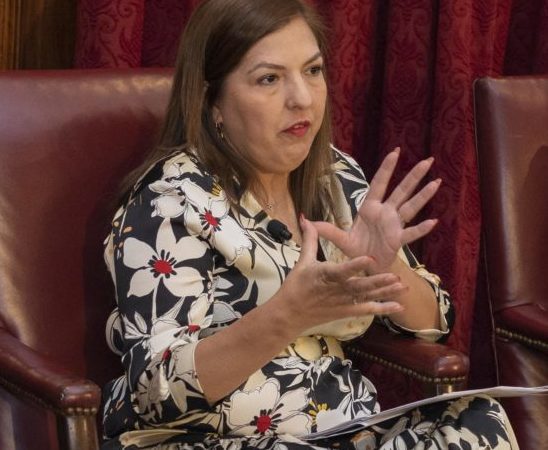
Panelist Dr. Alicia Pomata is Director of the Paraguay Ministry of Health and Social Welfare’s National Cancer Control Program (PRONAC) at the National Institute of Cancer (INCAN). As Director of PRONAC, Pomata has worked closely with City Cancer Challenge to unify diverse stakeholders and improve cancer prevention, detection, and care in Asunción.
Closing speaker
Global Director for Health Nutrition and Population at the World Bank and Director of the Global Financing Facility for Women Children and Adolescents
Closing remarks were provided by Dr. Juan Pablo Uribe, MD, the Global Director for Health Nutrition and Population at the World Bank and Director of the Global Financing Facility for Women Children and Adolescents. Previously, he served as CEO of Healthcare Providers for United Healthcare/Banmédica for Chile and Peru, and Minister of Health and Social Protection of Colombia.
Colaboración #multisectorial y evaluación del #impacto – clave para el éxito. Mañana compartiré nuestras experiencias trabajando con soluciones desarrolladas desde la ciudad para la ciudad, dentro del marco de la iniciativa @CCan’s @NCDAccess #UNGA77
@AliPomata
A great learning event, with honest and open discussion among many table groups. This is how "connective tissue" creates strength, as Dr. Alicia Pomata from Colombia told me - and she should know. She's studies connective tissues for a living!
@RachelNugent
Looking forward to the @NCDAccess #UNGA77 side event tonight. @RTI_Intl
@cngongo
Looking forward to the @NCDAccess #UNGA77 side event tonight. @RTI_Intl
@cngongo
Colaboración #multisectorial y evaluación del #impacto – clave para el éxito. Mañana compartiré nuestras experiencias trabajando con soluciones desarrolladas desde la ciudad para la ciudad, dentro del marco de la iniciativa @CCan’s @NCDAccess #UNGA77
@AliPomata
A great learning event, with honest and open discussion among many table groups. This is how "connective tissue" creates strength, as Dr. Alicia Pomata from Colombia told me - and she should know. She's studies connective tissues for a living!
@RachelNugent
Looking forward to the @NCDAccess #UNGA77 side event tonight. @RTI_Intl
@cngongo
Colaboración #multisectorial y evaluación del #impacto – clave para el éxito. Mañana compartiré nuestras experiencias trabajando con soluciones desarrolladas desde la ciudad para la ciudad, dentro del marco de la iniciativa @CCan’s @NCDAccess #UNGA77
@AliPomata
A great learning event, with honest and open discussion among many table groups. This is how "connective tissue" creates strength, as Dr. Alicia Pomata from Colombia told me - and she should know. She's studies connective tissues for a living!
@RachelNugent
Related news
Diversification makes us stronger
Q&A with Dr Rachel Nugent, Researcher, Economist and Policy Advisor on noncommunicable diseases.
To meet global goals, we need to get clearer on measuring impacts from collective action
It’s more apparent than ever that collective action will play a critical role in reaching the UN SDGs, and as its importance increases, so does the need to clearly assess the impacts of coordinated partnerships.
Access Accelerated 2021 Measurement Framework Report
Access Accelerated engaged RTI International in March 2021 to design a measurement framework to capture the impact of its investments for collective action through partner projects.
WITH THANKS TO
